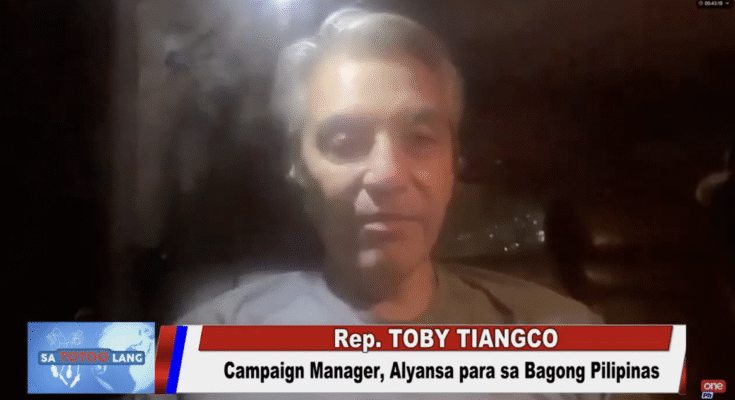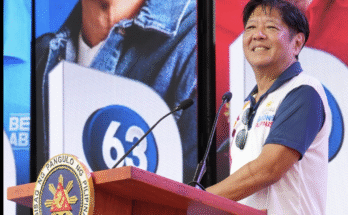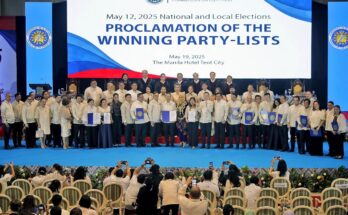NAVOTAS Rep. Toby Tiangco, campaign manager of Alyansa Para sa Bagong Pilipinas, pointed to the impeachment case filed against Vice President Sara Duterte as the key factor behind the defeat of many administration-aligned senatorial candidates in the recent midterm elections.
The major upset was badly felt in Mindanao where voters rejected candidates perceived to support the impeachment of Sara, Tiangco said in an interview on Thursday.
“We all know what happened in Mindanao. This all started when the impeachment was filed. Even before the campaign officially began, around November or December, we were already conducting surveys. We were closely monitoring Mindanao,” Tiangco explained.
“As soon as the impeachment was filed—something I want to clarify that I did not support nor sign and believe should not have been pursued—we saw a clear trend: Mindanao was solidifying.”
He noted that voters in the region changed their basis for choosing candidates.
“Before, they voted based on personal preference. But after the impeachment, their priority shifted to choosing those who would vote against the impeachment. Mindanao unified early on, and we saw that clearly.”
The Lower House impeached Duterte in February with 215 lawmakers signing the complaint – a move that Tiango described as “self-inflicted” which could have been avoided.
“It didn’t have to happen. The impeachment could’ve been avoided. I told them it was pointless since the Senate wouldn’t even take it up until June 2. But they insisted. And now they’re pointing fingers—at me, no less—for something they caused.”
He further said Alyansa knew there was trouble brewing in Mindanao, which is why they only held one campaign rally in the region during the 90-day national campaign period.
“We focused on areas where we thought we could still get votes. There was no point in going back to Mindanao when we already knew we wouldn’t win there. The people were clearly aligned with those against the impeachment,” he said.
When asked how Alyansa addressed the issue, Tiangco said they advised their candidates to campaign independently rather than as a group.
“When voters saw a full 12-person lineup, they assumed all of them would vote in favor of the impeachment. Their thinking was, ‘These 10 are anti-administration, these 10 will vote no (to the impeachment).’ So to improve their chances, we told candidates to go solo. Avoid going as a full Alyansa slate because the perception was already negative.”
Tiangco admitted there was a problem but insisted it didn’t originate from their camp.
“We recognize there was a problem. The question is: who caused it? Who started it? We tried to address it, but the root of the issue wasn’t ours.”





